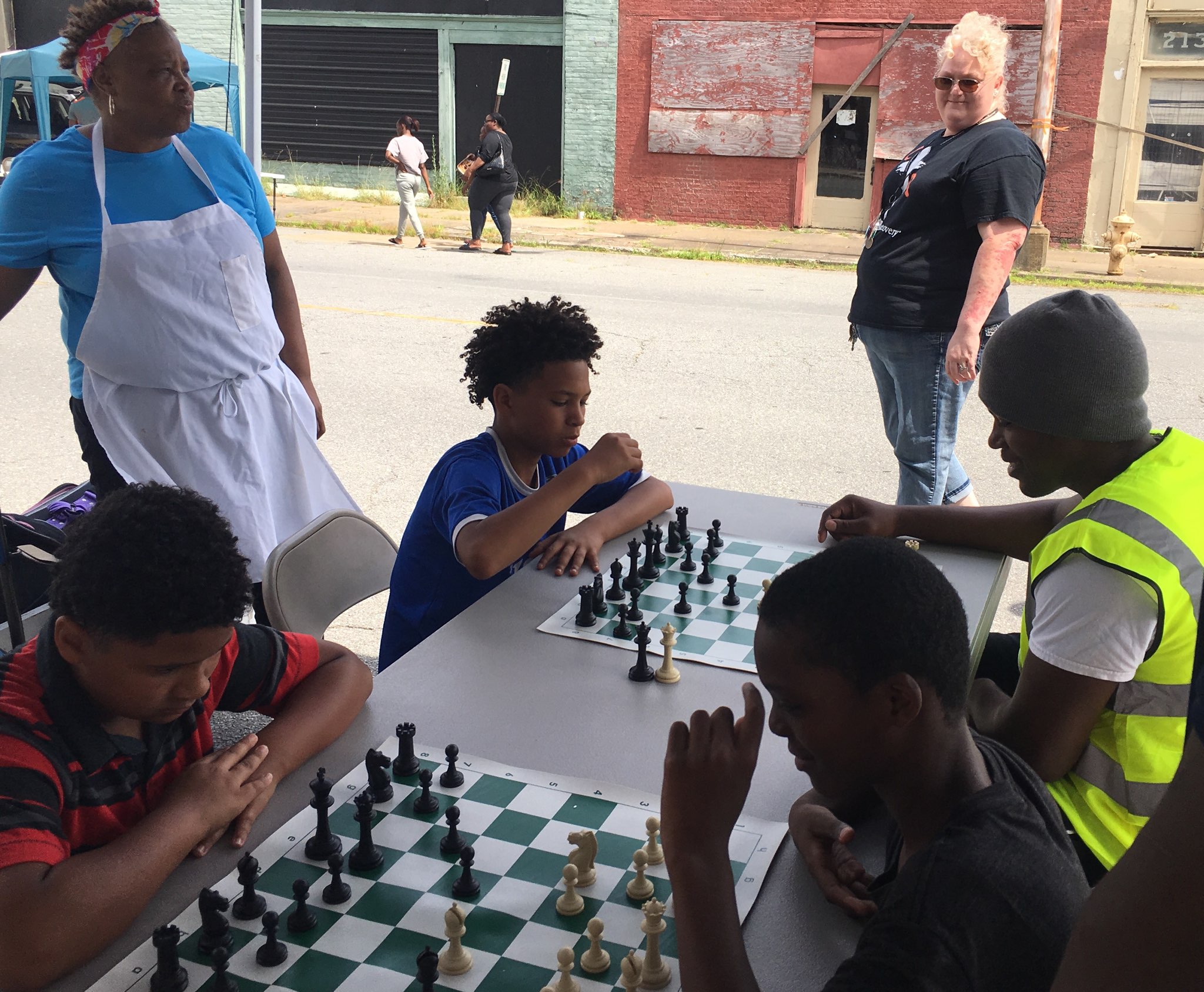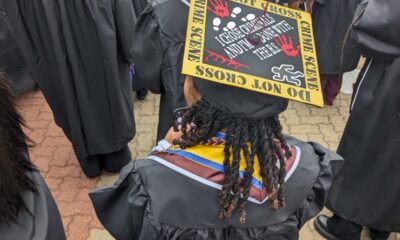Featured
Black Men Making Moves from Prison to Promise

A slight breeze lifted tablecloths and spirits as it blew through the small crowd gathered in Pine Bluff, Arkansas for a Juneteenth celebration. Not far from the booth staffed by representatives for the 2020 Census, some children played chess with one of the volunteers. They were learning how to win from a young man who understood what it means to lose.
“I learned to play chess in prison,” T.J. Sloan explains. “Before my prison journey for burglary, I had a program called ‘Yes, I Will.’ I want to become a motivational speaker.”
To reach that goal, the 30-year-old Sloan knows completing his education will help. Earlier in the day, he signed up for the federal education assistance program known as TRIO. TRIO has several components, but all are designed to assist non-traditional students with their educational pursuits.
“There are populations and people who are underrepresented and can’t afford an education or a trade,” says Michael Eubanks, a TRIO education specialist. “Many times people don’t know the opportunities exist.”
Veterans and former inmates are ideal applicants. Income is a variable and so is determination. Sloan meets both criteria, eager to wrap up the few weeks remaining on his probation.
The federal government is actively offering opportunities to help incarcerated Americans start new lives.
The Obama Administration initiated a pilot program called the Second Chance Pell Grant. Now, a growing number of colleges and universities offers incarcerated men and women opportunities to participate in the Second Chance Pell Grant. Inmates who qualify receive Pell Grants that provide for a postsecondary education during their time in a correctional institution in hopes of equipping them to provide for themselves and their families when they are released. Studies show that inmates who receive an education while incarcerated were 43 percent less likely to return to prison in three years than those who do not.
Shorter College, a faith-based HBCU in Little Rock, became one of the first to offer the Second Chance Pell Grant. President Jerome Green championed the potential of the program to change lives.
“Shorter College had already been interested in reentry,” Green says. “We were working on a program to work with people who were recently released and had gotten much traction…Shorter wanted to get into providing that service because it is consistent with our mission to uplift persons who may not have opportunities.”
Last November 25 inmates graduated from Shorter with associate degrees in entrepreneurial business.
Green says, “I felt very proud. I felt a sense of having made a difference in the lives of some people.”
It’s the same optimism Sloan exudes when he thinks of the life he wants to live with assistance through TRIO.

-

 Featured10 months ago
Featured10 months agoCalifornia Is the First State to Create A Public Alert for Missing Black Youth
-

 Featured10 months ago
Featured10 months agoAfrican American Leaders Stay the Course Amid Calls for President Biden To Bow Out of Race
-

 Featured10 months ago
Featured10 months agoThe Debate Fallout Lands on Both Candidates
-

 Featured9 months ago
Featured9 months agoPresident Joe Biden Decides to Withdraw from the Presidential Race
-

 Featured9 months ago
Featured9 months agoIn One of His Final Speeches as President, Biden Says It’s Time for ‘Fresh Voices’
-

 Featured10 months ago
Featured10 months agoPresident Joe Biden Describes Shooting of Donald Trump As ‘Sick’









